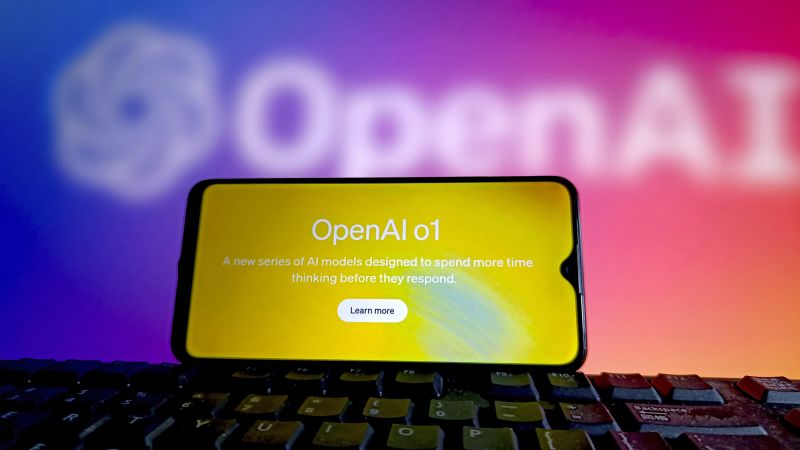OpenAI has introduced a new artificial intelligence model called OpenAI o1, which is said to be able to “reason” and solve more difficult problems in science, coding, and math than previous models. The model was released as a preview and will be gradually made available to most ChatGPT users. OpenAI trained these models to spend more time thinking through problems before responding, similar to how a person would. This allows the models to refine their thinking process, try different strategies, and recognize mistakes.
The new AI models can be utilized in various fields, such as healthcare research for annotating cell sequencing data and by physicists for generating complex mathematical formulas needed for quantum optics. Noam Brown, a research scientist at OpenAI, mentioned that the new models can think for seconds currently, but future versions are aimed to think for longer periods like hours, days, and even weeks. While this may result in higher inference costs, Brown highlighted the potential benefits in areas like developing new cancer drugs or breakthrough batteries.
There are discussions taking place between senior White House officials and top US tech executives about AI’s significant energy consumption. OpenAI CEO Sam Altman, Google executive Ruth Porat, and Anthropic CEO Dario Amodei were among those expected to attend the meeting. The high energy demand required by advanced AI systems raises concerns about its impact on global warming, despite the technology’s potential to address complex issues like cancer and the climate crisis.
The new OpenAI o1 model lacks some features that make ChatGPT useful, such as browsing the web for information, and uploading files and images. However, for complex reasoning tasks, the model is seen as a significant advancement. The company reported that in tests, OpenAI o1 performs similarly to PhD students on challenging benchmark tasks in physics, chemistry, and biology. It also correctly solved 83% of problems in a qualifying exam for the International Mathematics Olympiad, showcasing its capabilities in problem-solving.
OpenAI’s unveiling of the o1 model marks a significant step forward in the field of artificial intelligence, demonstrating the potential for improved reasoning and problem-solving abilities. While the model shows promise in tackling complex issues across various disciplines, including healthcare and physics, it also raises concerns about energy consumption. Discussions between industry leaders and government officials are ongoing to address the environmental impact of advanced AI systems and the balancing act between innovation and sustainability. Despite the challenges, the advancements in AI technology offer the potential for groundbreaking discoveries and solutions to society’s most pressing problems.


